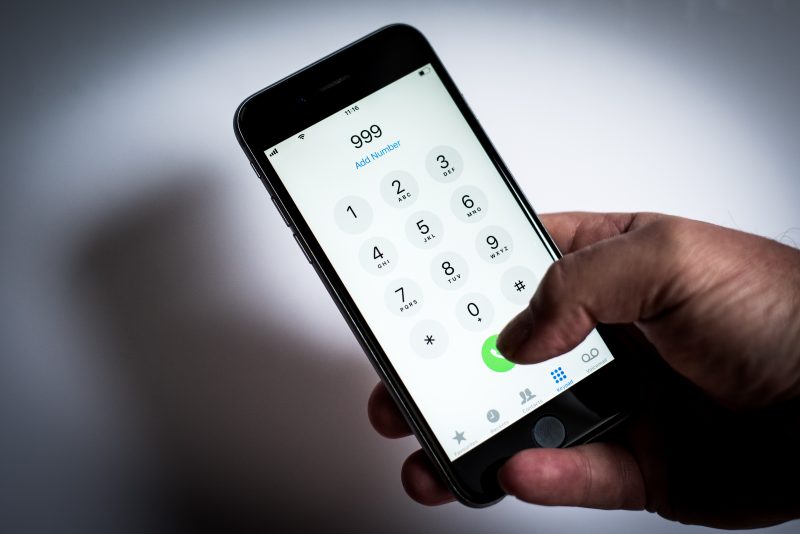Consent is about agreeing to the sex that you and your partner(s) want.
Key things to know
Remember that it is always okay to say no to sex.
In addition, just because you haven’t said no, this doesn’t mean yes. If you feel the sex you are having is not what you want then you are not agreeing to it.
If at any point you or your partner(s) become hesitant, uncomfortable or unsure, you have the right to say no and stop what you’re doing.
If you have any questions or concerns regarding consent, you can contact us for advice and support.
Get in touch
Age of consent
The term ‘age of consent’ means the age at which a person is allowed to legally consent to sex. The age of consent in the UK is 16.
The age of consent rises to 18 in situations where you or your partner(s) are or have been in a position of trust over each other, such as a teacher or carer. This means that if you have sex (including oral sex or mutual masturbation) with someone under the age of 18 where you are in a position of trust, this is an offence and you may be punished with a prison sentence.
For more information about consent, visit Brook’s website.
Giving consent
Consent, given willingly and enthusiastically, is essential in sex and it is always retractable. You can withdraw consent at any point. It’s not just a matter of saying yes, you can give consent both verbally and through body language. This lets your partner(s) know that you are enjoying yourself or if it’s not what you want. Equally, you can also withdraw consent verbally or with your body in the same way.
It doesn’t matter who you are having sex with, how far you have gone during the sex you are having or whether you have had sex with them in the past. If you decide you don’t want to continue or want to stop what you are doing, then that is your right to do so.
If someone is not listening to what you want or putting pressure on you to engage in any sexual activities – this is considered coercion. Being pressured and coerced to have sex is just as wrong as someone physically holding you down. Even if you haven’t said no, you still have not given consent freely and enthusiastically, therefore you are not agreeing to what is happening.
Getting consent
Enthusiastic consent from your partner(s) ensures that everyone involved wants to engage in sexual activities, freely and willingly. Consent must be gained every time for every sexual act.
Consent isn’t just what you have agreed to do with someone. It is a continuous conversation between you and your partner(s).
The important thing in getting consent is to make sure that you talk about what you want to do and how you both feel during sex. You can do this easily by asking questions like:
- is it okay if I touch you there?
- does it feel good when I touch you there or do this?
- do you like that?
Remember, when checking in with your partner(s) during any sexual activities, their verbal and body language should be enthusiastic. Enthusiasm looks different for different people and it can be hard to tell based on body language alone. If a partner looks uncomfortable, you should stop what you are doing and talk about it. Sometimes this may mean stopping altogether, to ensure that what you are doing is consensual.
Other things to bear in mind include:
- Being in a relationship does not automatically mean consent. In fact, it makes no difference at all.
- If your partner(s) haven’t said no then it doesn’t mean they have consented either.
- If your partner(s) is under the influence of alcohol or drugs they may not be able to consent.
- Just because your partner(s) have talked about things on apps doesn’t mean they are consenting to it in real life.
Saying no
In any situation and at any time, you can say no to sex and stop what you are doing.
Some things to help you feel comfortable saying no:
- Think about what you are and aren’t comfortable doing – this can help you feel confident in knowing when you want to say no.
- Talk to your partner(s) about what you are and aren’t comfortable doing before getting involved in sex.
You must always provide opportunities for your partner(s) to say no even when you are engaging in sex.
Alcohol and drugs
If you or your partner(s) have consumed alcohol or taken drugs, neither of you may be able to consent to having sex or engaging in any other sexual activities.
To give consent you must have the capacity to be informed. In other words, you must be able to know and understand what you are consenting to, freely and willingly, for consent to be valid.
Under the law, sexual consent is when we agree by choice, and have the freedom and capacity to make that choice. Having sex or engaging in any other sexual activities without consent, where you or your partner(s) are not able to freely give consent, is rape or sexual assault.
Reporting a sexual assault or rape
If you have not consented to the sex or sexual activity you have had, then you are a victim of a crime and you can report this to the police by calling 101 or in emergency 999.
You can also get support from your local sexual health service or third sector organisation. You can contact us for details of our relevant services in your area or you can contact Rape Crisis Scotland on 08088 01 03 02 for confidential support and information. They have local rape crisis centres across Scotland for ongoing support.
Looking for advice?
If you are looking for information and advice about taking care of your sexual health, we are here to help. Get in touch by filling in our contact form.




